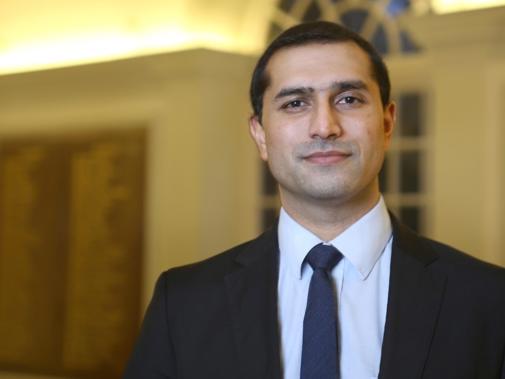However, the exact same difficulties are faced by thousands of doctors who are forced to retire early or reduce the amount of patient care they can provide.
The agreement for judges comes in a paper outlining the Ministry of Justice response to the McCloud case. This landmark 2019 legal judgment ruled that the imposition of 2015 pension reforms unlawfully discriminated against younger judges by offering transitional protection to those closest to retirement.
The Government conceded last year that this judgment had implications for all public pensions schemes ‘reformed’ in 2015, including the NHS pension scheme.
The Government has already backed the main proposal from the BMA to fix this unlawful discrimination regarding the transitional protection, in a separate consultation paper.
Certainty
Under what is known as DCU (deferred choice underpin), affected members can choose whether they are a member of their previous ‘legacy’ (1995/2008) or the reformed (2015) during the seven year ‘remedy period’ between 1 April 2015 and 31 March 2022 at the point of retirement.
The Government agreed with the BMA’s position that delaying this decision to the point of retirement, provides doctors more certainty regarding the value of their pension benefit at the time of choice.
But as well as offering judges a similar fix to discriminatory transitional protections, the MoJ has made significant changes to the future reformed scheme.
The future reformed scheme will no longer be 'tax-registered’ – essentially meaning judges will no longer be subject to annual allowance of lifetime allowance taxation. It is these very taxes that have left many doctors facing huge tax bills and is linked to not only a recruitment and retention crisis but even pre-COVID, contributed to the worst waiting lists on record.
Recruitment
BMA pensions committee chair Vishal Sharma said there were important parallels between the situations faced by judges and tens of thousands of doctors.
‘The unfair taxation on pensions that has caused retention and recruitment issues for judges, are the very same taxes that are having a terrible impact on the NHS with doctors having to reduce the work they do for patients or retire early, despite doctors wanting to provide more care for patients,’ he said.
Dr Sharma added: ‘This shows that a solution can be found to avoid highly skilled and experienced workers having to choose between continuing to work in their profession and facing a large tax bill for their pension, or leaving it altogether.’
The MoJ consultation paper admits of the link between the 2015 pension scheme and the ‘serious recruitment and retention problems’ in the judiciary.
These problems were raised by the RBSS (Review Body on Senior Salaries), judges’ equivalent of the DDRB (Review Body on Doctors’ and Dentists’ Remuneration).
In a major review of judges’ salaries in 2018, the RBSS linked ‘unprecedented’ levels of vacancies in courts with changes to their tax and pension schemes. These changes had cut High Court judge pay by £80,000 in 10 years, an effective 36 per cent decrease.
Campaign
Dr Sharma said the unfair taxation on pensions which caused retention and recruitment problems for judges were ‘the very same taxes that are having a terrible impact on the NHS, indeed after more than a decade of austerity, doctors take home pay has also fallen in excess of 30% in real terms. Given the very similar problems faced by doctors to those in the judiciary, it is only correct that the Government look to provide doctors with a long term solution to enable them to care for their patients without detriment’.
The BMA has long campaigned against the punitive pension taxes introduced by the 2015 scheme and for action to address the impending recruitment crisis in the medical profession.
‘The NHS was facing a huge workforce crisis long before COVID-19, with hospital consultants choosing to retire earlier, a significant proportion reaching retirement age, and a growing trend of younger doctors already deciding they’d had enough,' BMA consultants committee chair Rob Harwood said at the launch of a paper on workforce shortages, backed by seven medical royal colleges and the Faculty of Intensive Care Medicine last year.
Dr Sharma added: ‘Having demonstrated that creative solutions can be found, e art of the possible, we expect that the Government will provide a similar solution for doctors and their patients. They have waited far too long already.’

